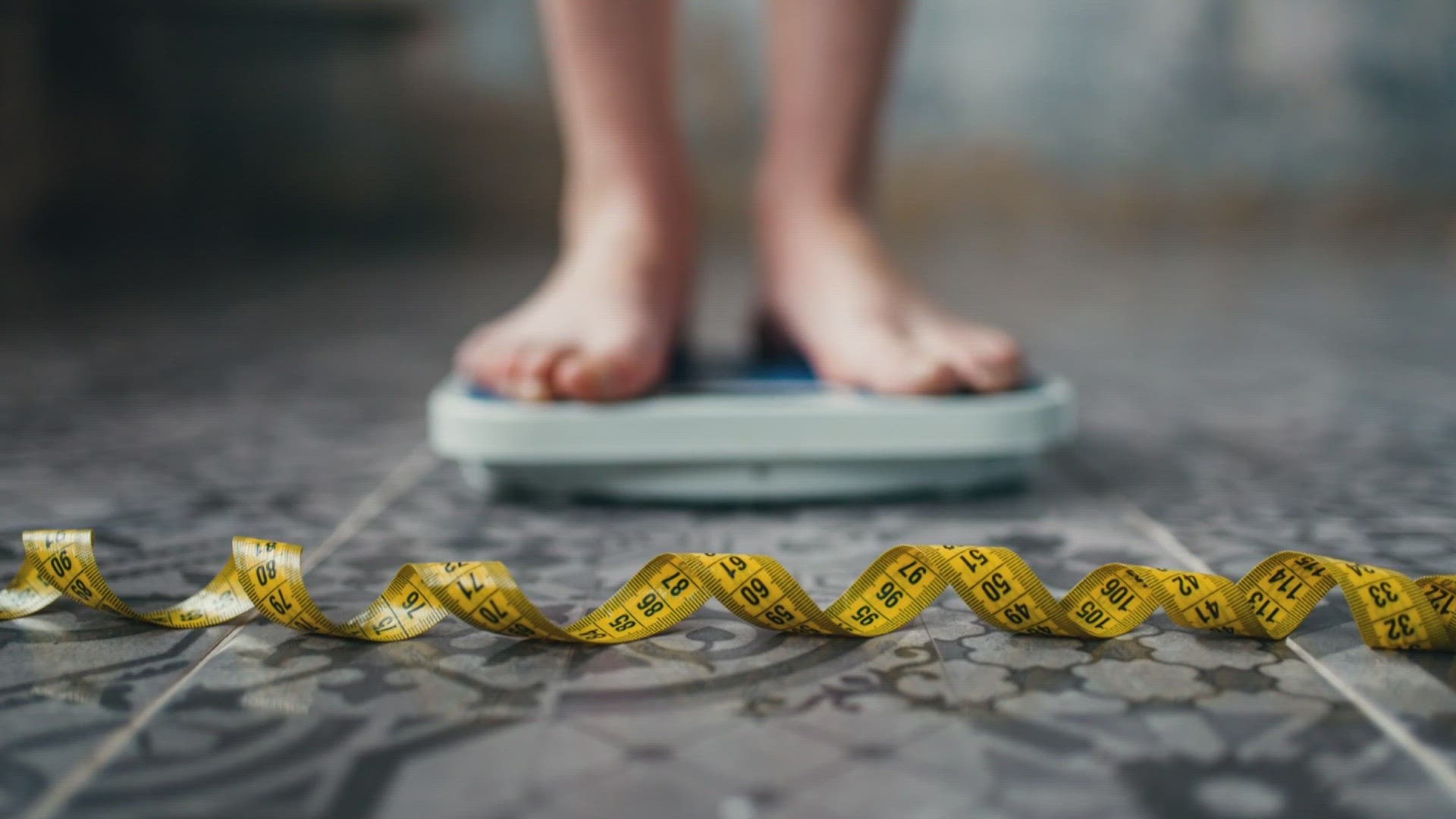PORTLAND, Maine — In our Let's Talk About It stories, we aim to shatter the stigma surrounding mental health issues and encourage open conversations about seeking help.
According to Johns Hopkins "All Children's Hospital," eating disorders have the highest risk of death of any mental illness.
The prevalence of eating disorders is staggering and unfortunately often go unnoticed, especially among children.
Experts reveal these disorders thrive in secrecy and have seen a significant spike since the onset of the COVID-19 pandemic.
One individual who has experienced the impact of an eating disorder firsthand is Jennifer Beagle, a woman from Old Orchard Beach, who has suffered from anorexia for 10 years now.
"I would try to spread out what I was eating to curb the eating pains, just trying to eat as little as I could," Beagle, who began restricting her food intake after a painful breakup a decade ago, said. "I was maybe eating 600 calories some days."
Her unhealthy habits soon led to severe consequences.
"I lost so much weight. I started losing chunks of my hair and got a stress fracture since I was overexercising," Beagle said.
Beagle's struggle was rooted in anorexia, wherein she constantly worried about her weight and feared she might pass out at work due to extreme dieting and excessive exercise.
"If I ate something small for breakfast, then I wouldn't eat lunch," Beagle admitted. "I'd be like, 'Oh, I already ate today.' And then I started to weigh myself daily, which would determine if I had a good or bad day."
Breaking the misconception that eating disorders are only apparent in extremely underweight individuals, Beagle emphasized these disorders can manifest in various ways and affect people of all body types.
Thankfully, Beagle's doctor quickly identified her condition and connected her with a nutritionist and therapist to embark on her path to recovery.
Lindsay Susi, clinical director at the New England Eating Disorder program, acknowledged the gravity of eating disorders.
"The sad reality is that eating disorders actually have a high mortality rate," Susi said, emphasizing that they affect individuals of all ages, races, and genders. "We certainly saw a huge influx and uptick in diagnoses at the start of the pandemic and in the last few years."
Sadly, eating disorders often go underreported and undertreated.
Susi said young patients, even those in middle and high school, often speak about their friends who engage in unhealthy behaviors or talk negatively about their bodies.
Seeking help and recovering from eating disorders is an arduous journey.
Beagle testified to this.
"A few years of therapy to learn how to eat right, it is a process, and I can say recovery isn't perfect," she said.
She admitted she still struggles with certain aspects of her disorder and must be intentional about promoting body positivity and maintaining a healthy lifestyle.
People often battle eating disorders for years, which can significantly impact their body's ability to function properly.
If you suspect that you, your child, or a loved one may be suffering from an eating disorder, there are signs to be vigilant about:
- Rapid weight gain or weight loss
- Avoiding meals or claiming to have already eaten
- Frequent trips to the bathroom after eating
- Feeling uncomfortable eating in the presence of others
Remember, seeking help is essential. If you or someone you know needs assistance, there is help. Services are available through agencies such as the New England Eating Disorder program at Sweetser.
Let's break down the barriers and support those struggling with eating disorders, fostering a culture of empathy, understanding, and acceptance for mental health challenges.
Together, we can make a difference in the lives of those battling these silent but deadly disorders.

